Dishes, trash, laundry, bills—they all need taking care of. Household chores can be boring and mentally and physically taxing, but doing them is necessary to have a clean and organized home life. Finding a harmony there is especially crucial for those who don’t live on their own.
Sharing household chores can be a headache for many couples. Striking a good balance is important for any equal relationship so partners have to weigh each other’s contributions fairly. Taking time to do so can ensure domestic bliss by preventing individuals from getting resentful about their workload.
However, sometimes, the balance is way off. A redditor that goes by @afoendo got all the housework pushed onto her without any prior agreement about it. After some time of putting up with it, she came up with a plan to turn things around and shared it on the r/AITA subreddit. Scroll down to see how she fared.
For couples that share a home, fairly dividing household chores can be the key to domestic bliss

Image credits: Cameron Yartz (not the actual photo)
But striking a good balance can be hard. This woman’s husband pushed all the chores onto her plate and this is how she dealt with it
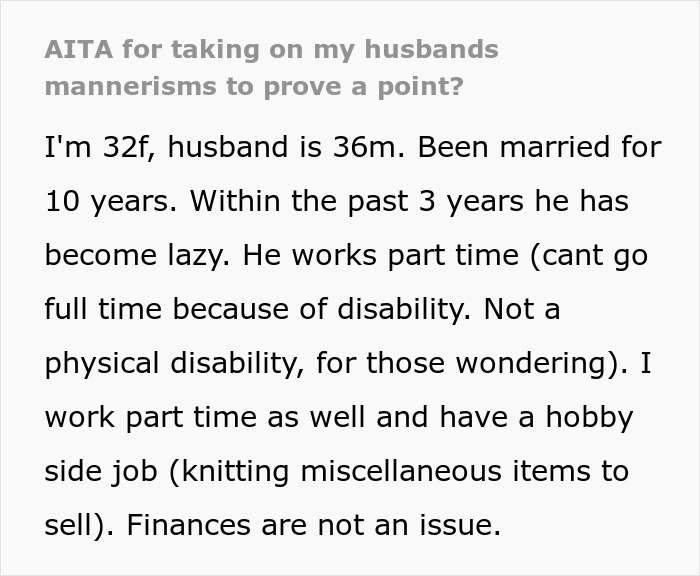
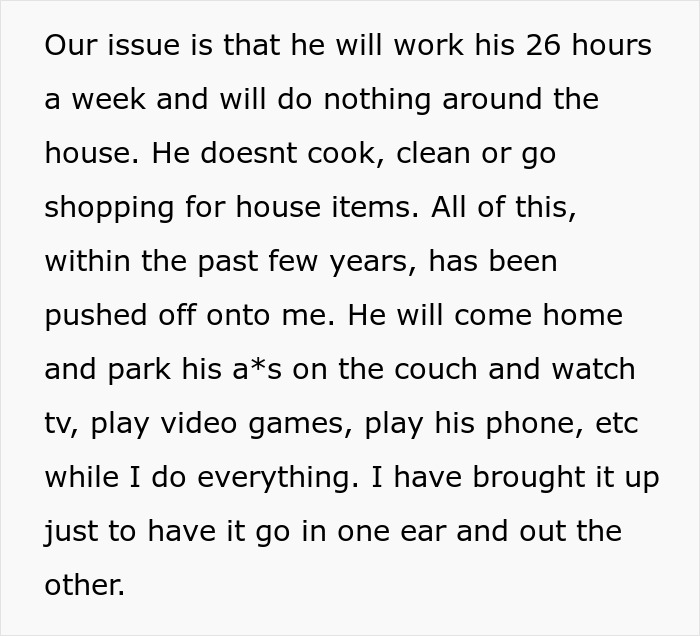

Image credits: Timur Weber (not the actual photo)
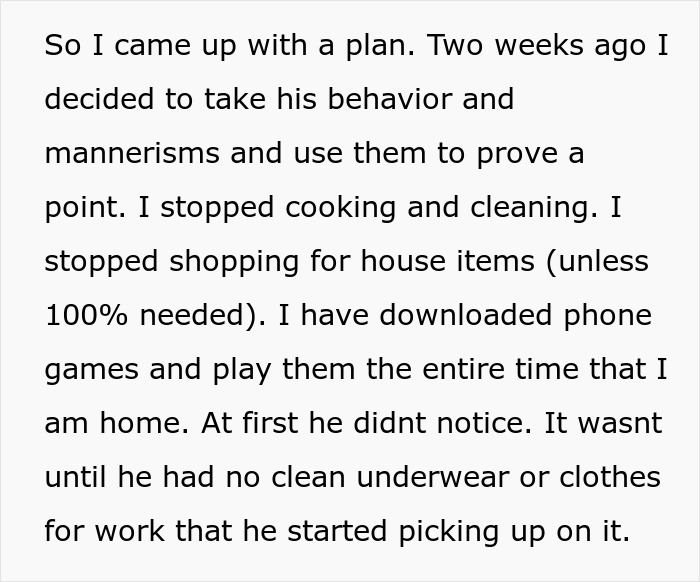
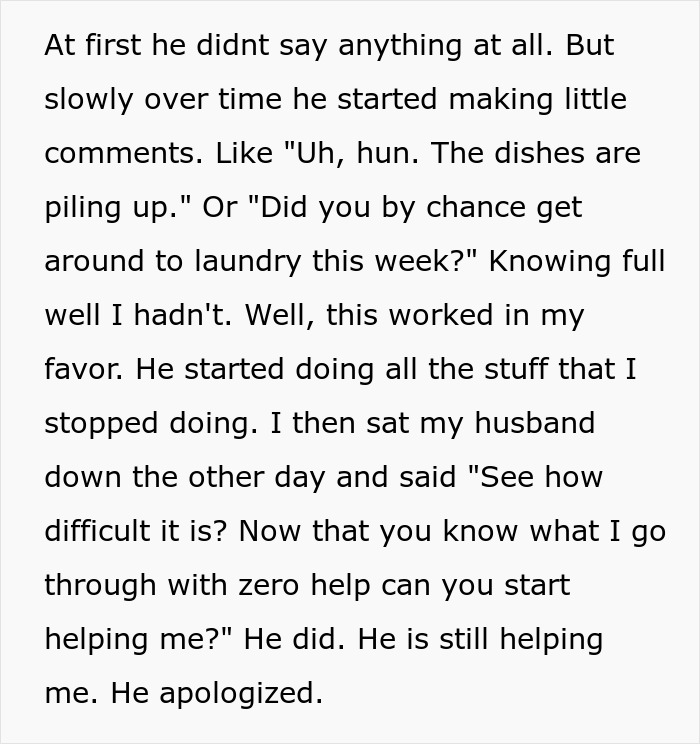

Image credits: RDNE Stock project (not the actual photo)

After everyone got curious, the woman clarified her husband’s condition in the edit

Image credits: afoendo
Splitting household chores fairly is more important than liking the same things or voting for the same party
According to a study published in 2007, sharing household chores is one of the top three things that make a marriage work. Number one is faithfulness, number two is having a good sex life, and number three is striking the perfect balance between responsibilities. This comes before adequate income, good housing, or shared interests and political and religious beliefs.
Another paper, published in 2022, seconds this finding. “The number of equally shared tasks matters a great deal for both men’s and women’s relationship quality,” writes the author, Daniel L. Carlson in the paper’s briefing. He’s found that overall fairness plays an important role in relationship satisfaction, and feeling like your workload at home is fair contributes greatly to that feeling.
But, of course, an equal number of tasks for both partners doesn’t mean it’s a balanced arrangement. Some chores are simply more arduous than others. Is dish washing as labor intensive as cooking? As time consuming? What about doing the laundry? Does that compare to cleaning the toilet or not?
The paper suggests that a good way of making sure that the tasks are balanced, is splitting tasks not designating them. That means finding an arrangement that would let both partners do the dishes, laundry, and trash interchangeably. That way, no one is stuck thinking they’ve settled for a harder task.
Another way of appropriately weighing the chores is breaking them down into smaller parts that are involved in making it happen. For example, doing the laundry can consist of sorting out the clothes, stain treatment, putting the washing up, hanging the washing, taking it down, folding it, and placing it back in the closet. Taking out trash can include taking the bag out, cleaning the bin, and placing a new bag in. This way, when you compare the two, you can see that one takes a few more extra steps, even though on the chore list they look like even tasks.

Image credits: Soroush Karimi (not the actual photo)
Making sure everything is fair is even more complicated for the OP because her husband suffers from disassociation
Dissociative disorder can manifest itself in many ways, one of them being feeling like you’re disconnected from the world around you. The feeling is often described as being outside of yourself and observing your actions. The world might also seem lifeless and foggy. Those feelings can last a few moments, days, weeks, or even months and years. People with the disorder can also have problems with memory, way more severe than simple forgetfulness. They might forget a skill they’ve learned or find themselves not knowing where they are or how they got there.
Knowing this, it could allow one to conclude that these symptoms can make dealing with everyday tasks harder than usual. That is why some people in the comments expressed concern over the situation. Even those who believed that he needed to sort things out and start doing his chores were a little put off by the OP’s dismissal of her husband’s condition in the post itself.
The majority, however, were on the OP’s side. Many pointed out that it was the friend who had a problem, not the husband. Commentators agreed that she knows her husband best, and if this type of approach to the matter actually worked and he ended up picking up his slack, then it shouldn’t be a problem for anyone.
Either way, while it might have been an unconventional way of making it work, it seems like the couple has sorted it out. What works for some couples don’t work for others and vice versa. So, maybe, sometimes it’s best to keep your judgement to yourself and not ruffle feathers over something that didn’t offend anyone in the first place.

Image credits: LinkedIn Sales Solutions (not the actual photo)
Many agreed that while it might have been a little unconventional, the woman did the right thing by insisting that her partner help out at home


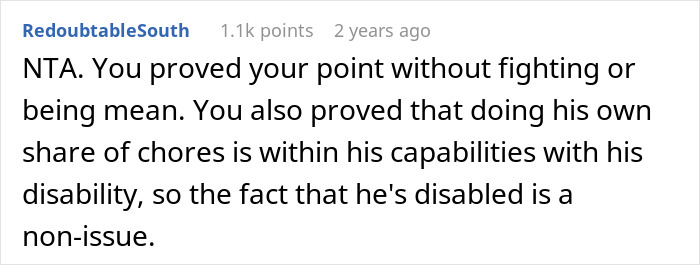



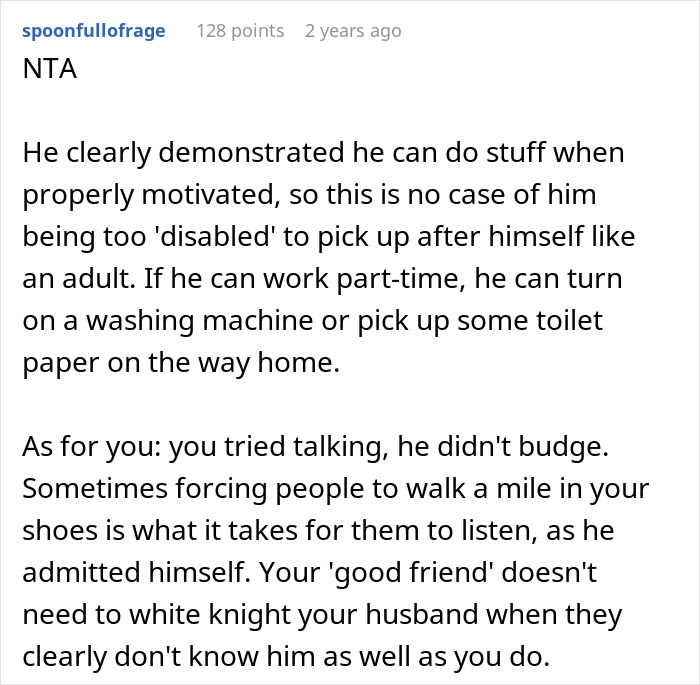



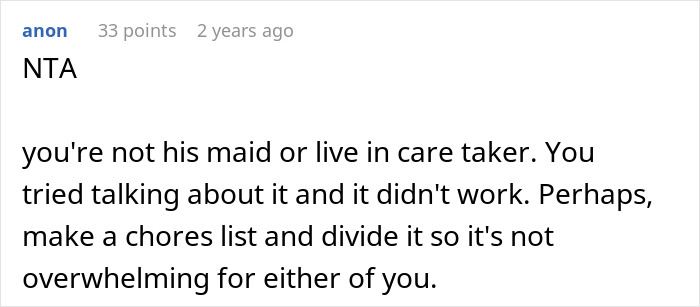
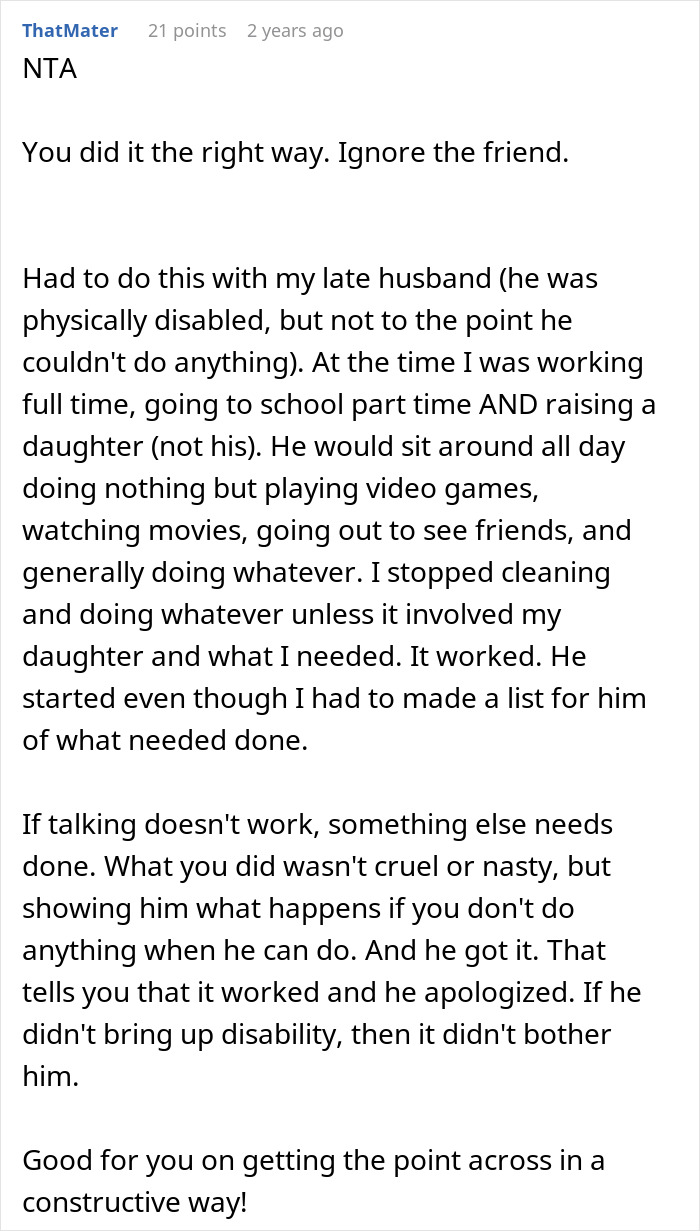

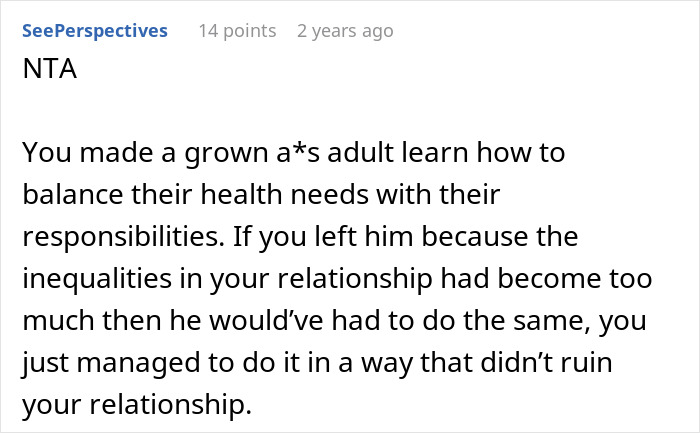
Others expressed concern over the husband’s disorder and the wife’s dismissal of his condition




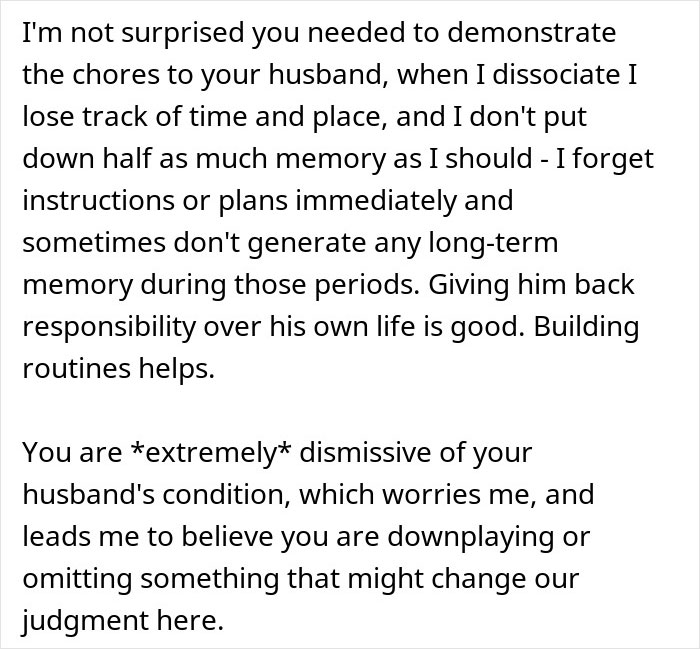
from Bored Panda https://ift.tt/h2Dox1R
via Boredpanda